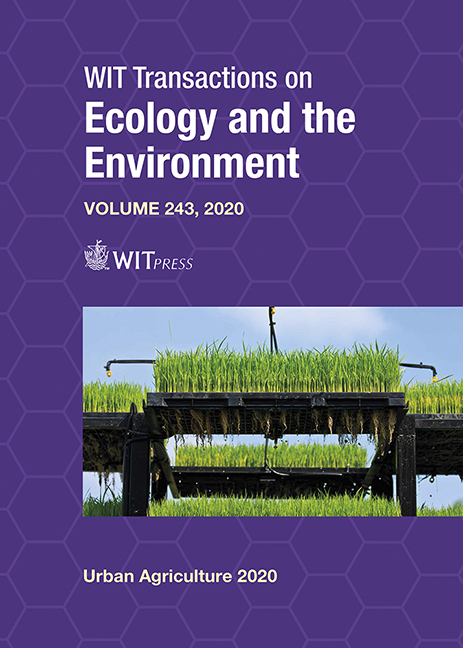“WHAT’S THE CARBON CONTENT OF YOUR FOOD?”: DEVELOPMENT OF AN INTERACTIVE ONLINE FOODPRINT SIMULATOR
Price
Free (open access)
Transaction
Volume
243
Pages
10
Page Range
123 - 132
Published
2020
Paper DOI
10.2495/UA200111
Copyright
WIT Press
Author(s)
KHADIJA BENIS, WALEED ALHAYAZA, ADNAN ALSAATI, CHRISTOPH REINHART
Abstract
As part of their sustainability agendas, cities are promoting urban food production as a means to reduce the demand for agricultural land elsewhere and shorten food miles. However, from an environmental sustainability standpoint, some assessments have shown that increasing self-sufficiency through local production for certain crops is not necessarily more sustainable than the current practice of importing them. Therefore, in addition to quantifying the potential for food self-sufficiency of cities through urban agriculture, there is a need to assess whether such scenarios are indeed more resource efficient than existing supply chains. For that purpose, a fundamental step in the sustainability assessment of alternative local food supply practices is the assessment of existing supply chains, to be used as baseline scenarios of the analysis. In our previous work, we referred to these baseline scenarios as “Urban Foodprints” (UF), a concept that expresses resource consumption and environmental impacts associated with the urban food system, from agricultural production to distribution and consumption. The very first step in building the UF of a given city is collecting information on its actual food demand, which is oftentimes a challenging task due to the scarcity of reliable data sources on food consumption. To fill this gap, this paper presents the development of an online food intake survey that collects a detailed snapshot of the self-reported dietary habits of respondents and probes to what extent their consumption choices are guided by sustainability concerns. By providing respondents with an individualized carbon content analysis of their food intake upon survey completion, this study further aims to raise awareness on the environmental impacts of our food choices as well as which food choices are most impactful.
Keywords
survey, food consumption, food system, environmental impacts, urban foodprint





